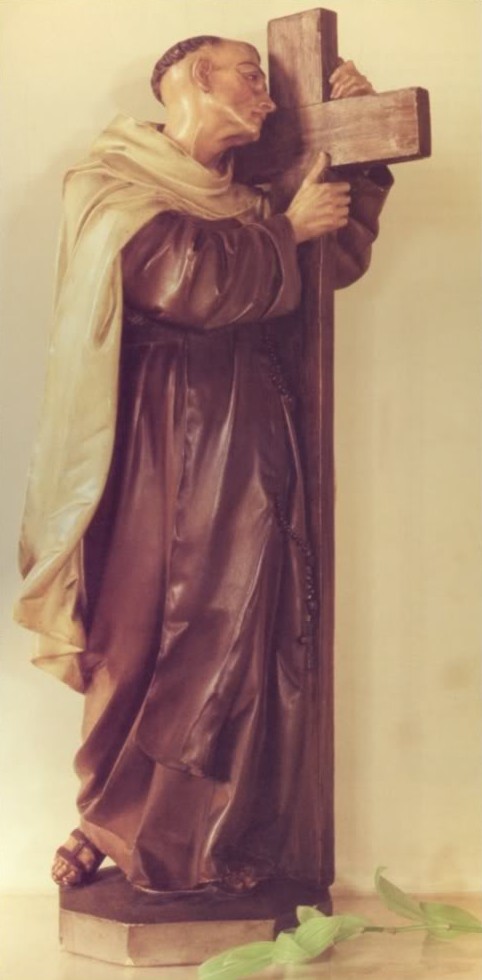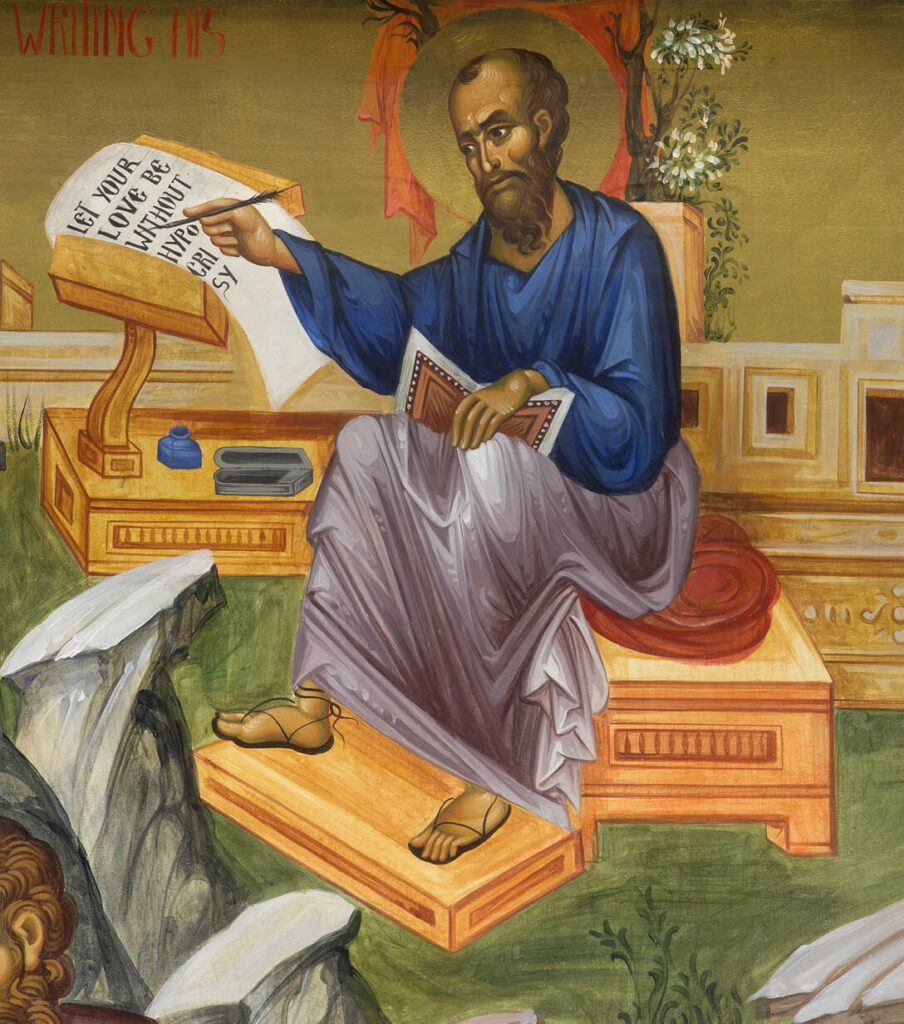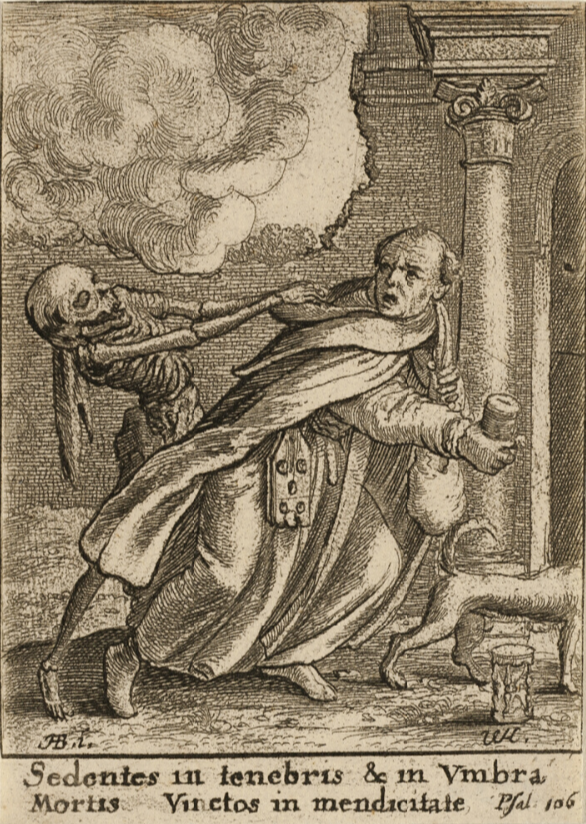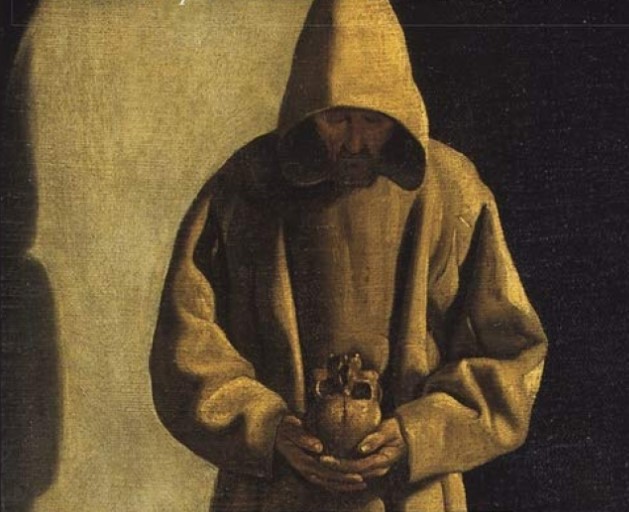The tranquil night
At the approaches of the dawn,
The silent music,
The murmuring solitude,
The supper which revives, and enkindles love.
St John of the Cross ‘A Spiritual Canticle of the Soul’ stanza XV

The tranquil night
At the approaches of the dawn,
The silent music,
The murmuring solitude,
The supper which revives, and enkindles love.
St John of the Cross ‘A Spiritual Canticle of the Soul’ stanza XV


What shall we say then? Are we to continue in sin that grace may abound? By no means! How can we who died to sin still live in it? Do you not know that all of us who have been baptized into Christ Jesus were baptized into his death? We were buried therefore with him by baptism into death, so that as Christ was raised from the dead by the glory of the Father, we too might walk in newness of life. For if we have been united with him in a death like his, we shall certainly be united with him in a resurrection like his. We know that our old self was crucified with him so that the sinful body might be destroyed, and we might no longer be enslaved to sin. For he who has died is freed from sin. But if we have died with Christ, we believe that we shall also live with him. For we know that Christ being raised from the dead will never die again; death no longer has dominion over him. The death he died he died to sin, once for all, but the life he lives he lives to God. So you also must consider yourselves dead to sin and alive to God in Christ Jesus.
Romans chapter 6



No one chooses his end. And yet, God allows doctors to shorten lives. When I asked Dom David about this subject, a silence came over the room where we had been speaking for so many hours: “Today, the problem of sedation is serious. We have to fight against intolerable sufferings. But if we do not feel pain anymore, life goes away. Now, with the progress of analgesics, we no longer feel anything. We no longer feel life. We no longer feel humanity. We no longer feel God approaching. Man becomes an abstract machine. Several brothers wanted to write instructions for the end of life. They refuse life-prolonging interventions, and they do not want deep sedation. We would all like to die in our sleep. The doctors induce artificial comas to be certain that the patient does not suffer anymore. Fear is a bad counselor. It is the ultimate antithesis of faith. Our materialist societies have an irrepressible obsession with pain. Why has our world forgotten that life does not exist without suffering? In the West, we are well-off, and we have trouble imagining the daily lives of the vast majority of mankind. How should I react when a ninety-year-old monk asks for a hearing aid? How should I react when this investment of three thousand euros could help twenty people in an African village? How should I react when ninety-five-year-old brother asks for new dentures? When you consider we eat mostly eggs, fish, and little meat There are hypochondriac monks. These are weaknesses. If a brother agrees to work on this weakness, a big step is made. His fault is shocking, but God pardons everything.” So does Dom David. His patience is immense.
En-Calcat is an oasis that one leaves with regret. To remember that time, it is enough for me to listen to Dom David one last time. In I986, when he returned to the abbey after a first unsuccessful attempt, he had the sense of being in mourning. The young brother entered into monastic life in order to be as close as possible to the cross. He did not leave a love-interest behind him, and yet, it took him a year to regain interior joy. Every brother experiences, in his own way, a widowhood.
Entering a monastery is the first step toward death. Every day, Dom David reflects on his last hour: “When I am face to face with the Grim Reaper, I might not have the courage to look at him. But I do not see him as a threat. Death is a passage toward Christ. I hope that the son of God will come to take me by the hand. There is a Hindu allegory about the last moments that I particularly like. It distinguishes young monkeys from kittens, The latter wait without doing anything for their mother to take them in her mouth, while the little monkeys cling to their to go from branch to branch t. At the hour of death, the monk would like to be a kitten in the mouth of Christ,” mother in order carried in the mouth of Christ.
“A Time to Die: Monks of the Threshold of Eternal Life” — Nicholas Diat

The Monk and Death by Wenceslaus Hollar 1651. Art Institute of Chicago collection

A poem by Ralph Waldo Emmerson
The debt is paid,
The verdict said,
The Furies laid,
The plague is stayed,
All fortunes made;
Turn the key and bolt the door,
Sweet is death forevermore.
Nor haughty hope, nor swart chagrin,
Nor murdering hate, can enter in.
All is now secure and fast;
Not the gods can shake the Past;
Flies-to the adamantine door
Bolted down forevermore.
None can re-enter there,—
No thief so politic,
No Satan with a royal trick
Steal in by window, chink, or hole,
To bind or unbind, add what lacked,
Insert a leaf, or forge a name,
New-face or finish what is packed,
Alter or mend eternal Fact.

At the end of the afternoon, we went to the large abbey cemetery. At the bend of an avenue in this solemn enclosure, Dom Olivier turned to me and said: “The hardest death is the little daily death, when we are perfectly healthy. In life, we go from one death to another; they prepare us for the ultimate end. Little deaths of the ego are the big deaths, and they allow for a good death. Why do some monks experience more difficult deaths than others? I cannot explain to you the reasons why God distributes our final trials so unequally. Perhaps monks carry for others humanity’s fears and anxieties. One day, my father told me that he was not afraid of death. I told my father that this was not a sign of holiness. Peaceful deaths are not necessarily the most holy. Good monks can experience anxieties when they embark for heaven. How did our brother Cistercians in Tibhirine die? We are almost certain they were beheaded. Who can know if they were afraid? Their spiritual battles must have been terrible. Satan is present until the final moments. He does not ease his infernal grasp. Why does God allow the devil to act as he pleases? Lucifer loves to sow trouble and despair. He is monster of pride. But God has the last word.
–”A Time to Die: Monks on the Threshold of Eternal Life” written by Nicolas Diat


A poem by Emile Verhaeren. The poet discovered in a book purchased at the South Chicago Benedictine monastery Holy Cross. “A Time to Die: Monks on the Threshold of Eternal Life”
The hounds of despair, the hounds of the autumnal wind,
Gnaw with their howling the black echoes of evenings.
The darkness, immensely, gropes in the emptiness
For the moon, seen by the light of water.
From point to point, over there, the distant lights,
And in the sky, above, dreadful voices
Coming and going from the infinity of the marshes and planes
To the infinity of the valleys and the woods.
And roadways that stretch out like sails
And pass each other, coming unfolded in the distance, soundlessly,
While lengthening beneath the stars,
Through the shadows and the terror of the night.

Recent Comments